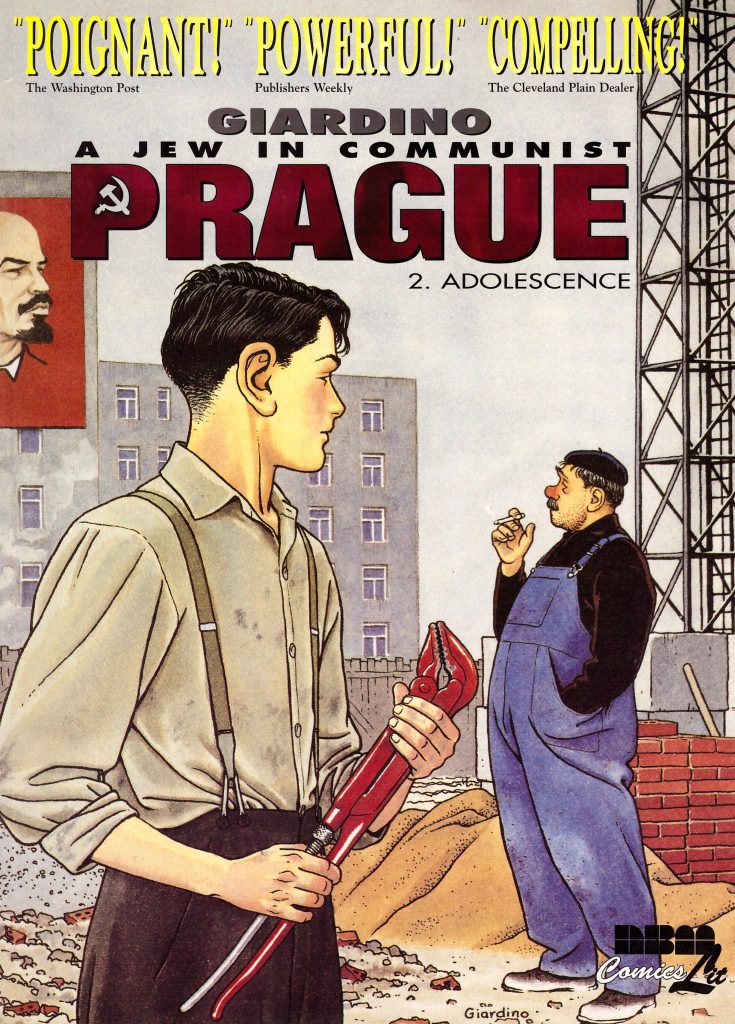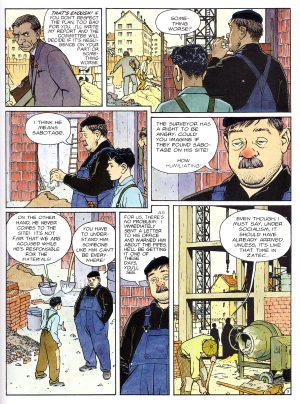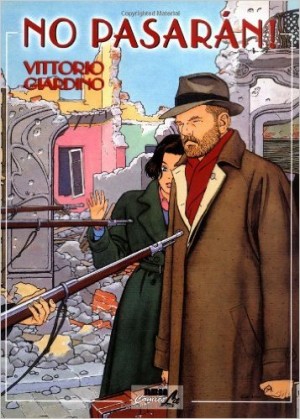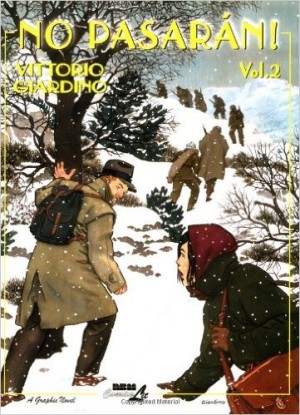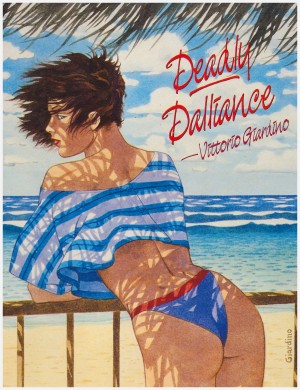Review by Frank Plowright
Events move quickly over the opening pages of Vittorio Giardino’s continuing study of persecution of Jews in early 1950s Communst-run Czechoslovakia. Aged 13 and no longer able to attend school, Jonas Finkel is accepted as a building yard apprentice, and by the time he’s fifteen he’s transferred to assist a plumber. Mrs Finkel is informed her husband has been sentenced to ten years in prison, but she’s finally been allowed to transfer to the day shift at the factory where she works.
As he’s slightly older Jonas is coming to understand more about the state system and how it’s targeted his family for persecution, and for the first time Giardino steps away from Jonas’ family to show a scene of the Czech Communist Party congress. Their declaration that a person can be wrong, but that the party never makes errors is the key to the justification of much that occurred in over a dozen countries during Soviet association. Jonas learns alternative attitudes via the subversive thinking of the plumber he works for, seemingly based on an earlier Czech malcontent, the Good Soldier Sjvejk, who’s later mentioned and was also extremely well versed in the manipulation of petty bureaucracy to his own ends. Franz Kafka’s meditation on similar state repression is also noted in passing.
Giardino’s characterisation is wonderful. A key pair of scenes begins with a florid representation of circumstances similar to those of Jonas’ father, but read subversively at a clandestine gathering, and Jonas’ conflicted reaction is wonderfully staged. It encapsulates frustration, guilt and selfishness, but is simultaneously entirely natural. While presenting a portrait of unjustifiable circumstances, Giardino never lets that overwhelm his narrative also being a coming of age story about a teenage boy, with all that entails. He takes his first faltering steps toward love, and whereas his mother’s problems occupied much of the first volume, Jonas is now a strong enough character to move centre stage.
Artistically Giardino works in the ligne claire style, only rarely resorting to lighting or shadow, using a very precise and cultivated naturalism. His cast have an emotional precision and his presentation of locations is first rate, convincing with building sites, pubs and crowded apartments.
Jonas grows considerably over the course of Adolesence, and it’s necessary preparation for the events of the third volume, Rebellion.
